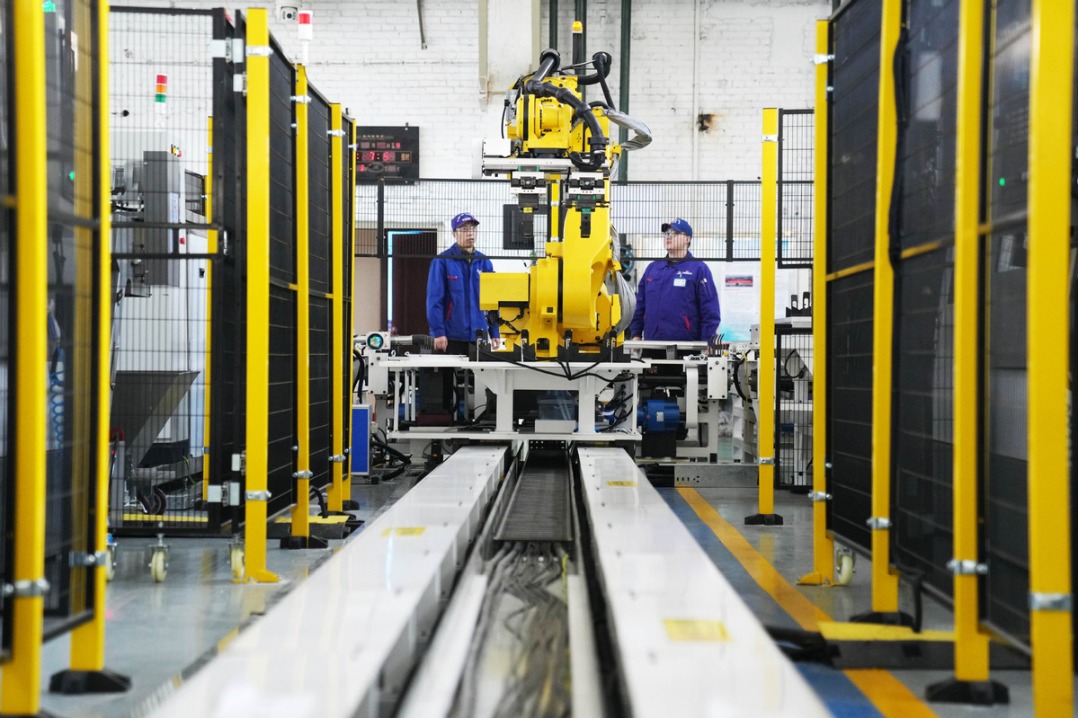Beijing's development blueprint for open economy

Beijing Municipal Commerce Bureau and Beijing Municipal Commission of Development and Reform jointly released a plan on June 22, 2016, to promote the development of the city's open economy during the 13th Five-Year Plan (2016-20) period.
It is expected that by 2020, new systems for developing an open economy in Beijing will be basically formed. Six key service sectors – scientific and technological, internet and information, cultural education, financial, business and tourism, and health and medical – will be further opened up.
Officials hope that by 2020, Beijing's trade in goods will reach $400 billion, while trade in services will be valued at $200 billion.
Two-way investment will total $100 billion during the 13th Five-Year Plan period, of which actually utilized foreign direct investment will exceed $50 billion, with foreign investment in the service sector accounting for more than 85 percent of that amount, and outward foreign direct investment will reach $50 billion.
A comprehensive port system, which integrates two airport ports, two road ports, and two railway ports, will be formed by the end of 2020. It is expected that the number of inbound and outbound passengers through ports in Beijing will surpass 30 million in 2020, and it will be more convenient for freight transport to clear customs.
To achieve these goals, the plan proposed six key tasks: speeding up the formation of new systems for developing an open economy, building a new pattern for the integrated development of foreign trade and economic cooperation, constructing a high-grade, precise and advanced economic structure, setting up platforms for further opening-up, building a world-class aviation hub and forming a comprehensive port system, and improving the legal system and fostering a stable, fair, transparent and predictable business environment.
Speeding up the formation of new systems for developing an open economy
Beijing is to promote reform of the management system for foreign investment and establish a new mechanism to advance its "going global" strategy. A unified guidance mechanism will be established to attract investment in key areas, such as modern services and strategic emerging industries. A comprehensive platform will be established to allow foreign investment information sharing among government departments and improve the supervision system for foreign investment.
A one-stop service mechanism for record filling and acceptance will be explored and established in Beijing to further simplify procedures for inland enterprises to invest overseas.
Beijing will also improve its support systems for the development of trade in services. It will increase support for key enterprises in the service sector in aspects such as market development, technological innovation, customs clearance and financial services. An information reporting system for key service enterprises will be established and the statistical system for trade in services will be improved to better timeliness, accuracy, comprehensiveness and authority of service trade statistics.
By giving full play to the advantages of special customs oversight areas, Beijing supports the development of producer services, including sectors of research and development (R&D) and design, marketing, and after-sales service. Pilot programs for simplifying entry and exit approval procedures for special goods needed for biomedical R&D will be conducted. Declaration procedures for food, cosmetics, animal-derived biological materials, fodder and additives will be simplified.
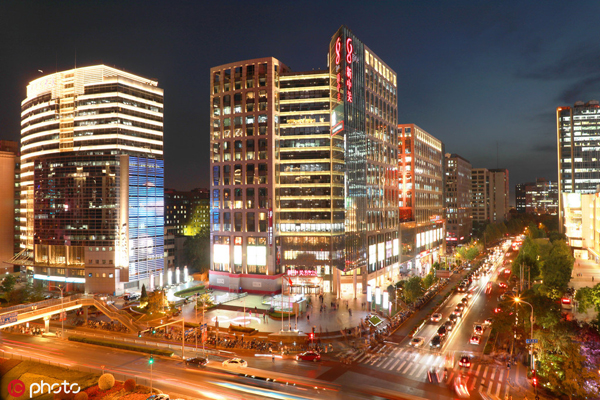
Building a new pattern for the integrated development of foreign trade and economic cooperation
The plan encourages Beijing to establish and improve its international marketing network to expand the export of goods and increase imports of consumer goods to improve the life service sector. It also supports enterprises in exploring the international market by making use of introduced achievements, and using resources, products, technologies, marketing networks and financing channels obtained through overseas investment to promote the development of relevant domestic industries.
According to the plan, Beijing should foster new growth drivers for its trade in services. Exports of financial, insurance, computer and information, consulting, communications, and building services should be increased, while international exchanges and cooperation in service sectors such as R&D, energy conservation and environmental protection, tourism, traditional Chinese medicine, sports, and catering should be strengthened.
Studies on the orientation and operating modes of the comprehensive bonded zone at Beijing Daxing International Airport will be conducted to make the new airport an extra gateway for international exchanges and economic and trade development for the Beijing-Tianjin-Hebei region.
Constructing a high-grade, precise and advanced economic structure
Beijing is encouraged to introduce high-end foreign-funded projects, involving a headquarters economy, hi-tech industries, producer services with high benefits, high-quality life services, and the high-value cultural creative sector, to promote the transformation and upgrading of industries to be high grade, precise and advanced.
New growth drivers for trade in goods should be fostered. The plan supports Beijing in developing new business models such as cross-border e-commerce, and promoting the development of such strategic emerging industries as electronic information, biological medicine, aerospace, new energy, new materials, and energy conservation and environmental protection, to advance the upgrading of product structures in goods trade.
The city will continue to enhance the competitiveness of trade in services by cultivating leading enterprises with strong innovation abilities. It supports the transfer of outsourcing services to places with good transport links, a favorable environment, and an appropriate labor force.
The plan supports Beijing's economic and technological development zones in advancing the construction of public service platforms and improving the evaluation system for the investment environment to promote industrial upgrading in those zones and to realize the overall improvement of industrial structure, technical levels and innovation abilities.
By giving full play to the advantages of the Zhongguancun Demonstration Zone, Beijing will carry out trials of comprehensive innovation and reform to promote the free cross-border flow of talents, technology and capital. Measures will also be taken to advance the technology trade and intellectual property transactions that rely on big data, cloude computing, the internet of things, and mobile internet.
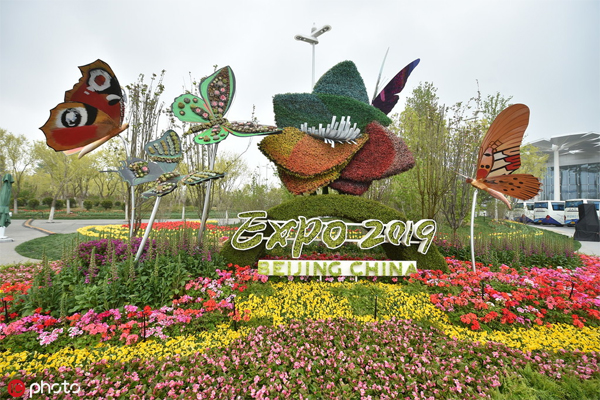
Setting up platforms for further opening-up
The leading role of China (Beijing) International Fair for Trade in Services (CIFTIS) will be given full play. CIFTIS has long been a window to demonstrate the city's service capabilities and a bridge for enterprises in the service sector in the region to "go global". An online trading platform for service trade will also be established to realize online and offline interactive development.
Beijing is being encouraged to stage more exhibitions of world-renowned brands, and develop its own conference and exhibition brands with strong international influence involving the sectors of science and technology, finance, culture, tourism, sports, and business services.
A public information service platform will be established to provide enterprises with services for domestic and foreign trade, two-way investment and finding and hiring talents. Construction of a national foreign cultural trade base in Beijing will also be promoted to explore new development models for cultural creativity, cultural artwork trade, and copyright trading.
Beijing will promote the transformation and upgrading of demonstration bases by gathering leading foreign trade enterprises and scientific and technological innovation companies on the bases and forming a high-grade, precise and advanced industrial structure.
Building a world-class aviation hub and forming a comprehensive port system
Beijing will improve its port open system by accelerating the official opening of Beijing Daxing International Airport, realizing direct customs clearance at the Pinggu International Land Port, and expanding the business scope of the cargo port in Fengtai district.
The customs clearance service system will also be streamlined by establishing a cross-departmental and cross-regional cooperation mechanism for customs clearance to realize information exchanges, mutual recognition of supervision, and assistance in law enforcement. The application of a single-window system for international trade, in which cross-border traders can submit regulatory documents at one location, will be promoted in Beijing to strengthen the informatization and intellectualization of ports.
A port economic system composed of ports, functional zones, industrial bases and regional economies should be developed in Beijing. Specialized bases, such as the national foreign cultural trade base and the international aviation materials trade base, are to be established. Construction of bonded warehouses for general aviation aircraft and spare and accessory parts will be sped up.
By giving full play to the policies of free trade zones, Beijing will develop parallel importing of automobiles, build platforms for displaying and trading import and export commodities, and advance cross-border e-commerce.
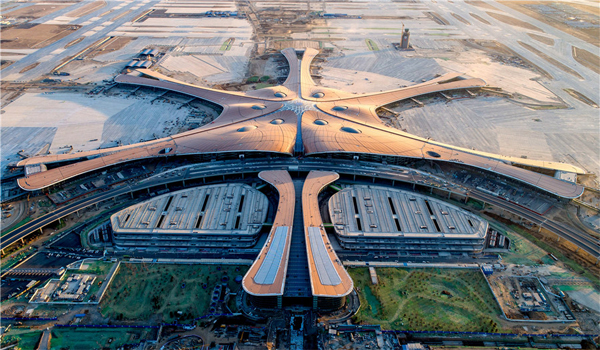
Fostering a stable, fair, transparent and predictable business environment
Beijing will strengthen protection of intellectual property rights, and improve the response system for foreign-related intellectual property rights disputes.
The city will also deepen reform of the administrative examination and approval system to reduce the number of items subject to that system, simplify the procedures, and shorten the time limits for applications.
Beijing will clean up regulations and practices that impede fair competition and ensure that enterprises under all types of ownership have equal access to production factors in accordance with law, and are equally protected by law.
This English version is only for reference.
MOST POPULAR
- 1 A look at China's economy in Q1 of 2024
- 2 China to remove foreign ownership restrictions in value-added telecom services in pilot areas
- 3 Query service of A Guide to Working and Living in China as Business Expatriates launched
- 4 Clear negative lists to speed up services trade
- 5 Canton Fair opens in China with surge in overseas purchasers
Editors' Picks
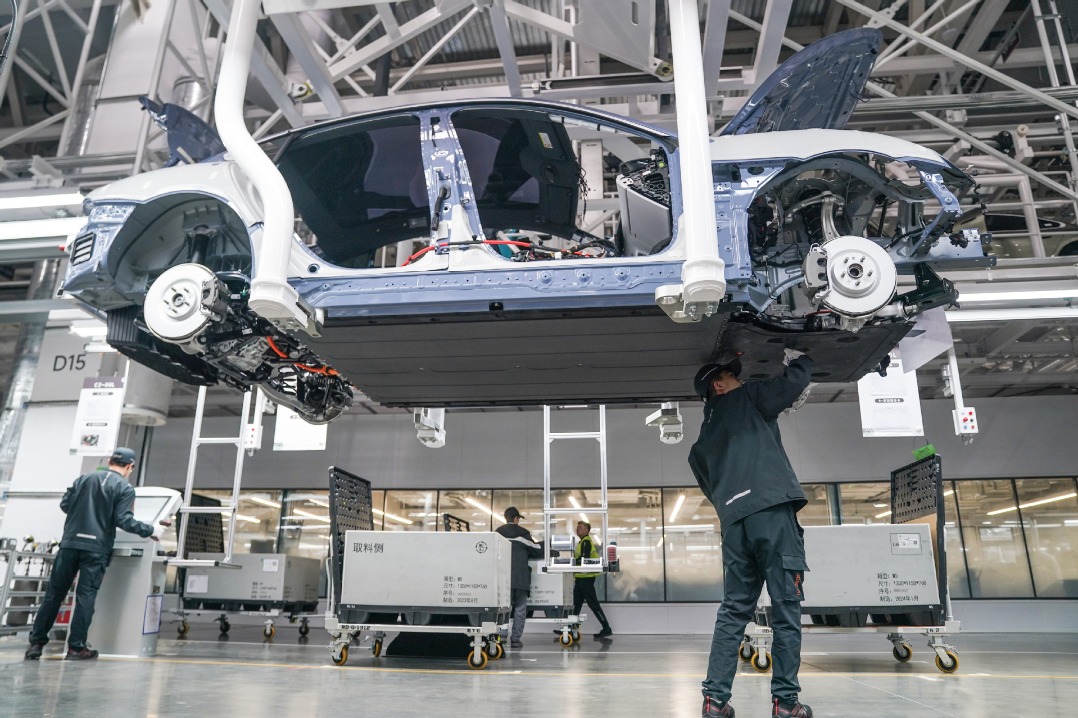 Infographic:
How to understand China's production capacity
Infographic:
How to understand China's production capacity
 Infographic:
Milestones of China's journey to space
Infographic:
Milestones of China's journey to space


